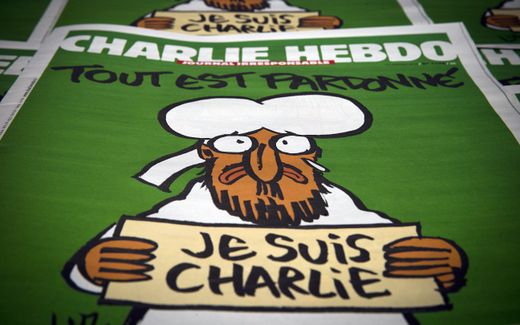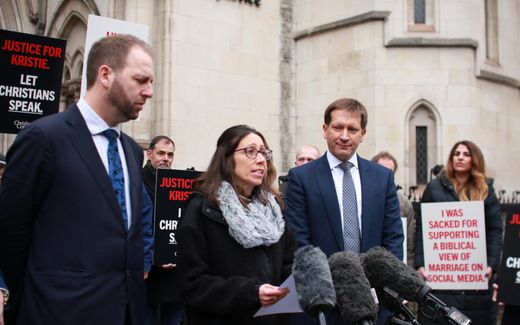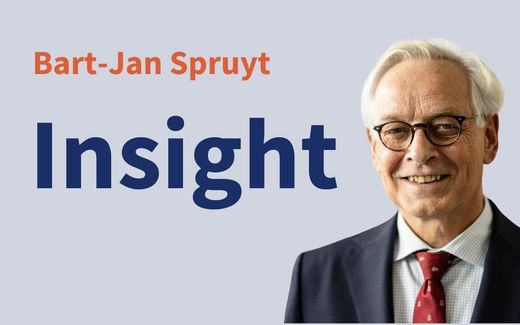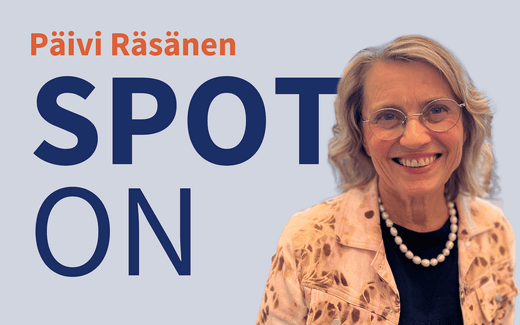Freedom of expression is at risk all over Europe
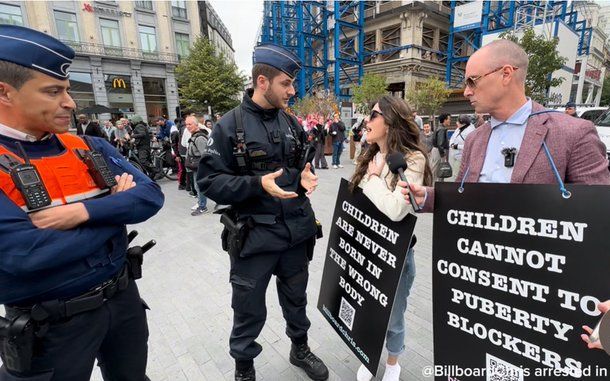
The police took Billboard Chris from the streets. Photo X
Opinion
A billboard about puberty blockers was enough to remove the Christian activist Billboard Chris from the streets in Brussels, last Friday. Freedom of expression is at risk in the European Union, not only according to ADF International, but also according to The Economist.
Stay up to date with Christian news in Europe? Sign up for CNE's newsletter.
Who is Billboard Chris? His real name is Chris Elston. On his website, he introduces himself as a father of two girls who decided to “take a stand against gender ideology”. According to him, “children should be free to be who they are – not indoctrinated to believe they were born in the wrong body.”
Chris defines “gender ideology” as a “pseudo-religious movement which claims that children can be born in the wrong body. It claims that we all have a “gender identity” which takes precedence over our biological sex”.
He, furthermore, points out that gender clinics prescribe so-called “puberty blockers” to help young people who have come to believe that they were born in the wrong body. These drugs completely block puberty from occurring, which makes it easier to later conform their biological sex to their “gender identity”. Often, puberty blockers are the first step in a medical pathway that brings “physical harm to children”, says Chris.

He refers to a ruling by the High Court in England, which laid out that children cannot give informed consent to these life-altering drugs.
Disturbance
Since 2021, Chris has travelled around the world, showing a billboard with the statements “Children cannot consent to puberty blockers” and “Children are never born in the wrong body”.
His demonstrations often evoke counter-protests. This also happened last Friday in Brussels, where Chris, together with Lois McLatchie Miller – who works for the London branch of ADF International (Alliance Defending Freedom) – were arrested by the police and spent some hours in police cells.
As Chris wrote on X, they had chosen to call the police after being surrounded by people protesting at their stance.
“4 police vans and about 14 police showed up. I guess they thought it was easier to take care of us than the angry mob, so we were taken to a police station — after refusing to remove our signs and walk away — and told we were being charged with what translates as causing a disturbance of the peace. We were then handcuffed and transported to another police station. All of our possessions were taken and logged, I had to strip down to my underwear for a search, and we were put into jail cells.”Several hours later, Chris and Lois were released from custody. No charges were filed. They believe their treatment should be regarded as "an abuse of authority and state-sanctioned censorship".
“This is the type of authoritarianism we challenge in other parts of the world, and it's deeply disturbing to see it here in the very heart of Europe.”
Paul Coleman, Executive Director of ADF International, said: "The Belgian authorities not only failed to uphold the fundamental right to speak freely, they turned the state's power against those peacefully exercising their rights at the behest of a mob. This is the type of authoritarianism we challenge in other parts of the world, and it's deeply disturbing to see it here in the very heart of Europe.”
Binding framework
What happened to Billboard Chris is not a single incident. Freedom of expression is at risk in the European Union.
In February 2024, the European Commission (EC) put into force a legally binding framework that gives the EC authority to enforce “content moderation” on large online platforms and search engines within the European Union.
“Europe really does have a problem with free speech.”
This framework is called the Digital Services Act (DSA). Its stated objective is “ensuring a safe, predictable and trusted online environment.” It intends to address “the dissemination of illegal content online and the societal risks that the dissemination of disinformation or other content may generate". Furthermore, it aims to protect “fundamental rights enshrined in the Charter [of Fundamental Rights of the EU].” DSA is supposed to create “legal certainty”, “greater democratic control”, and “mitigation of systemic risks, such as manipulation or disinformation”.
Is DSA what it says it is? Two weeks ago, ADF organised a meeting in the European Parliament in Brussels to discuss the contents of DSA and concluded that DSA does not create “legal certainty”, “greater democratic control” or “mitigation of system risks, such as manipulation or disinformation” but, in fact, is “an authoritarian censorship regime antithetical to democracy.”
Harm
Remarkably enough, The Economist which is considered a leading voice in international journalism, also rang the alarm on the growing threats to freedom of speech across Europe. “Europe really does have a problem with free speech”, The Economist wrote. “All European countries guarantee it. However, most also try to limit the harm they fear it may cause. It often extends to speech that hurts people's feelings.”
The Economist highlighted the story of Päivi Räsänen, a Finnish Member of Parliament who endured hours of police interrogation and has been prosecuted for six years after posting a Bible verse on X, questioning the church's sponsorship of a Pride event. Her case is presently pending before Finland’s Supreme Court.
The Economist points out that Päivi Räsänen's case is far from isolated. Across the continent, vague “hate speech” laws are being weaponised against innocent people for peacefully expressing their beliefs, particularly online.
The DSA forces online platforms to monitor and censor what is deemed “harmful” or “illegal” content. However, the meaning of “illegal” is not defined in the DSA. It means anything that is not compliant with the law in any EU Member State, including laws that are to come in the future.
For this reason, ADF's Paul Coleman fears that the DSA will set “a de facto global censorship rulebook” that will affect speech across the planet. “The DSA is irreconcilable with the fundamental right to freedom of speech.”
ADF and The Economist warn us against a development that will ultimately lead to the erosion of free speech. The DSA seems to be a clear example of this development, and so does the arrest of Billboard Chris last week in Brussels.
Related Articles



